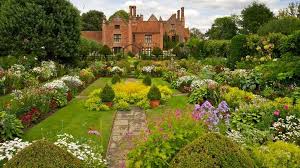Inside an age labeled by increasing ecological concerns and urbanization, the function of garden houses in promoting eco friendly communities has grown to be increasingly substantial. These eco-warm and friendly dwellings provide not only housing they work as catalysts for optimistic change, cultivating resilience, collateral, and interconnectedness within local neighborhoods. Let’s discover why garden House (zahradní domek) are very important in building sustainable areas.
Economic Viability: Garden houses provide an cost-effective housing option for individuals and family members seeking to stay sustainably. By utilizing cost-effective building resources, energy-productive layout methods, and distributed sources including local community home gardens and common spots, garden house areas helps to reduce real estate expenditures and improve affordability. This economical viability makes sure that sustainable lifestyle continues to be open to people of diverse backdrops and revenue amounts.
Eco friendly Land Use: Garden houses promote environmentally friendly property use practices by enhancing the productive use of room in metropolitan environments. By incorporating portable, multi-functional models and prioritizing natural infrastructure including bad weather gardens, permeable paving, and green roofs, garden house advancements reduce their ecological footprint whilst capitalizing on eco-friendly room and biodiversity. This process to property use promotes densification in downtown areas when protecting all-natural habitats and boosting the quality of the developed setting.
Lively Travel: Garden houses promote sustainable transport choices by prioritizing walkability, bicycling, and general public transportation accessibility. By finding near public transport hubs, bicycle lanes, and pedestrian-warm and friendly facilities, garden house neighborhoods decrease reliance on autos and market productive settings of travel. This not merely lowers green house gas emissions and targeted traffic over-crowding but also boosts community wellness superiority existence for citizens.
Societal Variety and Inclusion: Garden houses bring about cultural diversity and societal inclusion within residential areas through providing options for anyone from various backgrounds ahead collectively and reveal activities. By means of cultural exchange courses, local community activities, and collaborative tasks, garden house people can celebrate assortment, foster understanding, and make bridges across social divides. This comprehensive method of neighborhood creating fortifies sociable cohesion and promotes a feeling of belonging for all those associates.
Durability and Adaptability: Garden houses enhance neighborhood durability by endorsing self-sufficiency, resourcefulness, and adaptability within the deal with of environmental and economical problems. By integrating renewable energy systems, normal water preservation procedures, and foods manufacturing campaigns, garden house residential areas lessen their vulnerability to additional shocks such as electricity shortages, drinking water lack, and food items uncertainty. This strength makes sure that neighborhoods can flourish in the middle of uncertainty and change.
To sum up,garden House (zahradní domek) enjoy a vital role to promote lasting communities that prioritize cost, sustainable property use, energetic transportation, ethnic diversity, inclusion, strength, and adaptability. By embracing these concepts, garden house residential areas can create vibrant, strong, and equitable local neighborhoods that enhance the well-becoming of citizens and the health of the earth.
